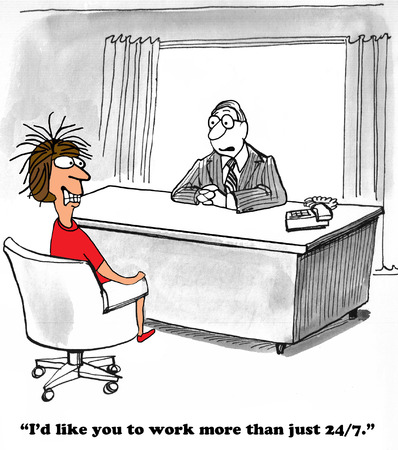
Over the last couple of months, the French government has been considering whether or not it should ban employers from e-mailing their staff outside of their contracted hours. While we criticise the French work-ethic for their notoriously long lunch breaks and regular strikes, French workers are, on average, more productive than their British counterparts – that means they get more done, in fewer hours. So should we be following their lead?
One of the main reasons the French want to ban out-of-hours communications is that it potentially breaches France’s strict employment laws, that limits full-time work at 35 hours a week. The other reason is to protect workers from the stress of being at their boss’ beck and call; ensuring workers can spend their time out of the office on the things they want.
Apart from in industries which do require staff to be on call, such as recruitment or some healthcare professions, most companies don’t expect employees to check e-mails or messages at evenings and weekends. At least, not formally. Many managers will expect that level of commitment, living and breathing a job, and will quite happily bombard staff with e-mails out of hours that they expect quick responses to. With smartphones and tablets giving us real time access to our e-mails, our work can be following us around in our pockets. And employees will often oblige, not wanting to lose favour in case future promotions come around or appear lazy compared to colleagues. Work-related stress is a growing issue in the UK and poor work-life balance is thought of as a key cause.
A study has been conducted in the US to examine the connection between stress and taking business e-mails at home. The interesting results of this research was that people weren’t stressed about the work they had to do at home, but the anticipation of not knowing if you were going to be needed – that there’s something you’ll need to do, but that you don’t know what it is. Staff feel like they have to be “always on” and can’t always switch off from work. And that makes a lot of sense – try and enjoy a family dinner, or just a relaxing evening in front of the TV when you feel a need to check your phone regularly, or are constantly listening out for your ringtone.
So should business in Stockport keep out-of-hours contact to a bare minimum? Or ban it completely? Well, it depends – some businesses do run round-the-clock. In these instances it should be possible to contact people outside of their usual hours, but clearly having an organised “on-call” rota or procedure in place should help to ease people’s anticipatory worries. Otherwise, let people get on with their evenings. It can probably wait until the morning anyway!

